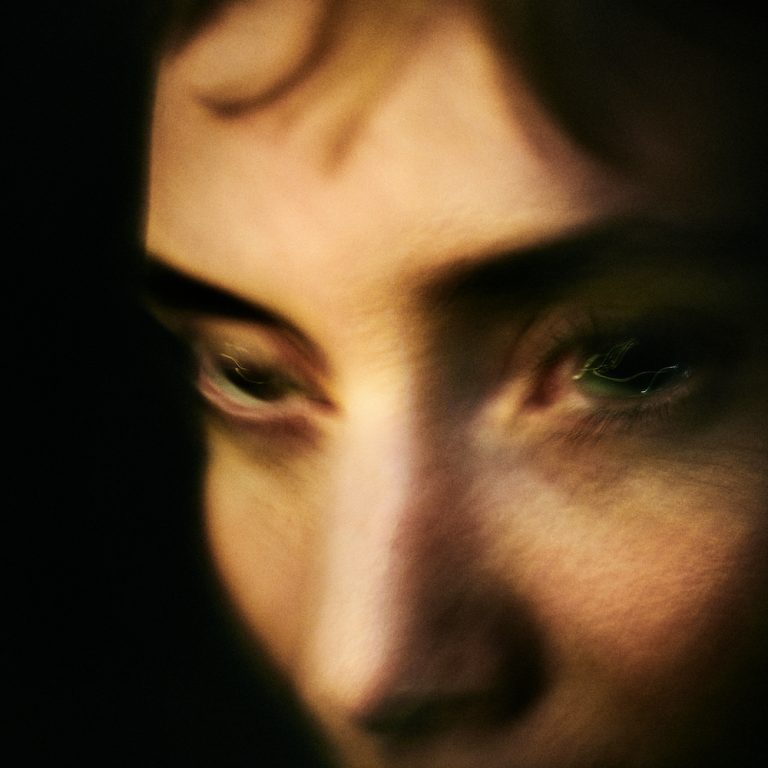There’s something to be said for stripping things back. Lykke Li knows this notion well. The Swedish singer-songwriter has spent the years since her lovely debut album trying to chase that record’s perceived naïvete with hard edges, darker colors, and skeletal production. But then in 2018 — the last time we’d hear from Li until now — she put out possibly her biggest bid for Modern Pop Stardom in So Sad So Sexy. Though embedded with of-the-day production techniques, including traps beats, vocal effects, and sticky hooks, the record ended up feeling awkward and undercooked. It was a much weirder album than its pop veneer would’ve had you believe, but despite its turn away from I Never Learn’s barebones stylings, it wound up more vacant than that record’s quiet emotional currents.
With her fifth album, EYEYE, Li ditches those hi-hats for the hollowed out caverns of the heart, retreating back to the bedroom hush of I Never Learn. This style does suit Li’s voice and songwriting very well, and that has largely been the case since her debut. Older tunes like “Tonight” and “I Know Places” were stunning in their quiet stillness, and she perfected the art on I Never Learn’s “Love Me Like I’m Not Made of Stone”. That track proved to us that Li needed very little besides a simple guitar line, a clean production, and an evocative vocal.
On EYEYE, we get a similar vibe, but things have shifted. Li has said this album was entirely recorded in her bedroom on cheap equipment with only old collaborator Bjorn Yttling (and Shawn Everett mixing to tape) along for the ride. Songs were often captured as they were composed. This assured claim of lo-fi, homespun authenticity — replete with frequent room tone and the sounds of insects behind the recording — is mostly conveyed, even though it often still sounds rather pristine. We hear someone, presumably Yttling, counting Li in on the opening track, “No Hotel”, but pretty soon the song feels enveloping despite its small scale, mostly because the singer is so close in the mix. It gives the feeling of someone singing in a back alley with only the street lights leaking dimly around the corner, Li’s voice echoing ever-so-slightly over the chorused guitar. It’s an auspicious start.
EYEYE is even more minimal and lo-fi than I Never Learn, yes, but it still goes down smoothly. One of the crunchiest songs, “You Don’t Go Away”, still aches with longing, palpable through the soft, staticky production. It’s a cold pillow of a song. And the production is kind of the secret weapon here. Where past Li ballads often relied on her singing to do the heavy lifting, much of this album finds her writing and singing in more or less a single mode.
Since her singing stays in the same gear throughout, it’s the production and instrumentation that has to do most of the magic tricks. Smooth keys and organ buoy the lovely “Happy Hurts”, sometimes replacing Li for almost a whole minute. “Carousel” has a gently galactic, almost-Lynchian synth cycling in the background, giving the song the atmosphere of being on its eponymous ride. Overall, the majority of the album sounds like it’s somewhat submerged under water. Even when the percussion comes out, like on the hooky chorus of “5D”, things still sound sort of aquatic.
But back to the single mode thing. Li crafted this album as a visual album to be accompanied by a video component for the entire thing, and maybe in that context it works very well. But going purely off the audio, the album ends up being a bit of a slog. With each song coming out at an aqueous, lugubrious pace, the 33 minutes here wind up feeling longer than they are. It’s never anything but deeply pretty, and some moments transcend into something greater, like “ü & i”, which uses all the tools we heard throughout the album to a sharper, bigger, and more resonant degree.
But mostly, as a whole product, the album shows us a talented artist operating in almost a single approach, over and over. Even the ‘lo-fi’ intent of the album seems to fade away slightly by the end of the record, and it isn’t as raw-edged as, say, Feist’s last two albums or anything by any number of DIY singer-songwriters. These are pretty songs, but largely forgettable when amassed together, and though EYEYE is an honorable attempt at switching lanes yet again after a divisive fourth album, it mostly comes up short as a finished product.

